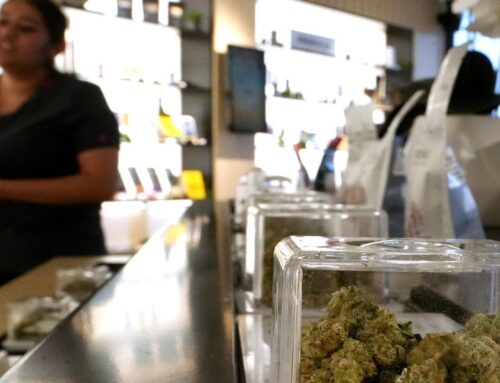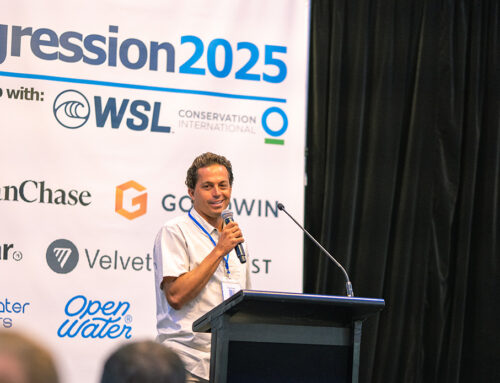‘Stalwart’ of Mass. marijuana legalization movement dies at 67
June 27, 2025
Long before the notion of decriminalizing or even legalizing marijuana became politically popular, advocates like Bill Downing were trumpeting the drug’s medicinal benefits and the need to rescind its prohibition.
His efforts paid off. Downing, a force in the grassroots community of cannabis activists, lived to see Massachusetts voters decriminalize pot and allow its sale for medical and then recreational purposes.
Downing, of Reading, was 67 when he died last Saturday at Lahey Hospital and Medical Center in Burlington. The cause was an aggressive form of pancreatic cancer, his partner, Ellen Moore, said.
“He was an iconoclast who challenged the immense power structure that is marijuana prohibition,” John Dvorak, of Lynnfield, a fellow cannabis advocate and Downing’s friend of over 30 years, wrote in an email.
When Downing joined the Massachusetts Cannabis Reform Coalition, or MassCann, in the early 1990s, the organization was still in its infant years of pushing a far-off dream of pot legalization.
With the drug banned at the state and federal levels, Boston Police and city officials were none too pleased as the group’s signature protest for legal pot, the Boston Freedom Rally, blossomed from a small demonstration to an annual mass showing of civil disobedience on Boston Common.
With a head of long hair, Downing was in a class of old-school hippies who “breathed air into the legalization movement just by doing what they were doing,” John Swomley, a now-retired lawyer who lent his legal services to the group through the American Civil Liberties Union, recalled fondly.
Downing rose to become MassCann’s president, serving in the role for 14 years. He was instrumental in growing the rally and establishing it as an annual tradition that each September now turns the Common into a hazy festival dedicated to celebrating and educating about cannabis.

For many years, the festival faced a “game of brinkmanship” with the city over its permitting, and organizers sometimes had to sue or threaten to sue to secure permission for the event, Swomley said.
Some attendees faced arrest for drug possession.
Downing was once cuffed for donning a fake pig nose and following and drawing attention to undercover police officers as they waded through the crowd of rally-goers. Police were unimpressed, friends recalled in interviews.
Downing knew the process of changing laws took time, friends said. His work paid off with the state’s decriminalization of marijuana in 2008, the legalization of medical marijuana in 2012 and full legalization in 2016.
But even after achieving the long-sought goal, Downing continued his work as a cannabis educator and stayed on top of emailing, writing letters and pushing state lawmakers to adopt reforms to the legal pot industry, Moore said.
“It was a long, hard slog and Bill Downing was one of the stalwarts who had just one of the best manners of dealing with government authority, not letting it bother him, and doing it year after year and letting the show go on,” Swomley said.
A native of Newtown, Connecticut, Downing was predeceased by his wife, Heather, who died in 2021. He is survived by two children, Freya and William.
In his garden and yard in Reading, medical cannabis plants flourished alongside vegetables and flowers. He was a capable handyman, enjoyed cooking and loved spending time with his family and friends. He remained close with a group from his days at Babson College in Wellesley, Moore said.
His passionate support of medical marijuana led Downing in 2013 to start a company, Yankee Care Givers, providing cannabis for medicinal purposes through a loophole in state law.
Through the store, he registered himself with the state as a caregiver to droves of medical marijuana patients, allowing him to provide them with marijuana products, Bill Flynn, another former president of MassCann and Downing’s longtime friend, said.
State officials eventually shuttered the business, saying the medical marijuana law passed in 2012 only allowed him to serve as a caregiver to one person.
Downing later opened another store in Boston, CBD Please, selling products containing CBD, a nonpsychoactive cannabis compound, for medicinal use. Police raided his home and business in 2016 and filed charges, alleging the products contained trace amounts of THC, the primary active component in marijuana, which then remained illegal, according to a Boston Globe report from the time.
The charges were later dropped, Swomley, who represented him in the case, said.
Downing and his fellow activists knew cannabis legalization “was a long slow war of attrition” and felt confident they had the backing of the public, Swomley said. “He was eternally optimistic and enjoyed that he was causing trouble.”
He had deep devotion to medical marijuana patients, having used the drug to treat his own ailments for years, said Dr. Uma Dhanabalan, a physician who works with cannabis.
The pair met more than a decade ago, when both led courses at the Northeastern Institute of Cannabis, an educational center in Natick dedicated to teaching people the ins and outs of the pot industry. They became close friends.
The uphill struggle to overturn cannabis prohibition “never changed him,” Dhanabalan said. “He never became hard. He became kinder, more giving and more dedicated to this.”
“His sense of humor was just incredible,” Dvorak said. “He had this great quirky laugh that would just echo off the walls. You knew he was up to something if he was laughing, but it didn’t detract from his goals.”
Downing also worked in sales and marketing, including for Philips Norelco, and for a period made and sold barbecue sauce distributed in stores across the Northeast.
Massachusetts Gov. Maura Healey last year honored MassCann with a citation for “35 years of encouraging volunteering, for the creation of the Boston Freedom Rally, for ending the criminal prohibition of marijuana, and for continued advocacy on behalf of cannabis consumers.”
The group, Healey wrote, embodied “what it means to be a grassroots organization.”
“When you smoke a joint, eat an edible, or take a dab without worry of any civil or criminal punishment, it’s because of Bill,” Jeremiah MacKinnon, president of the Massachusetts Patient Advocacy Alliance, a medical marijuana advocacy group, wrote on Facebook this week as tributes to Downing poured in. “He laid the groundwork for the freedoms we now take for granted.”
Search
RECENT PRESS RELEASES
Related Post




